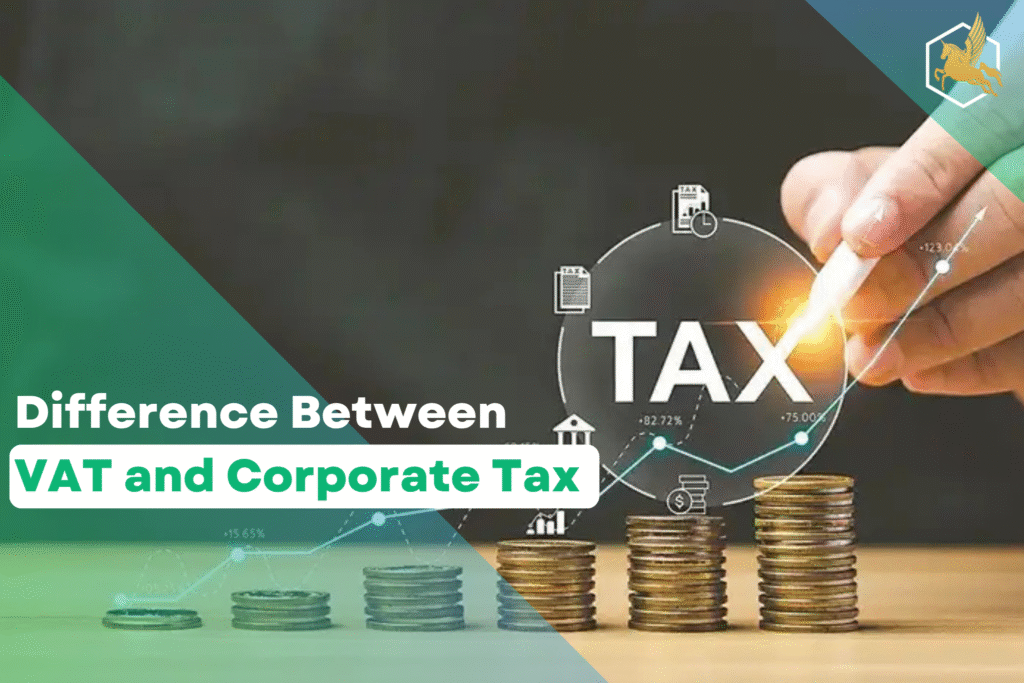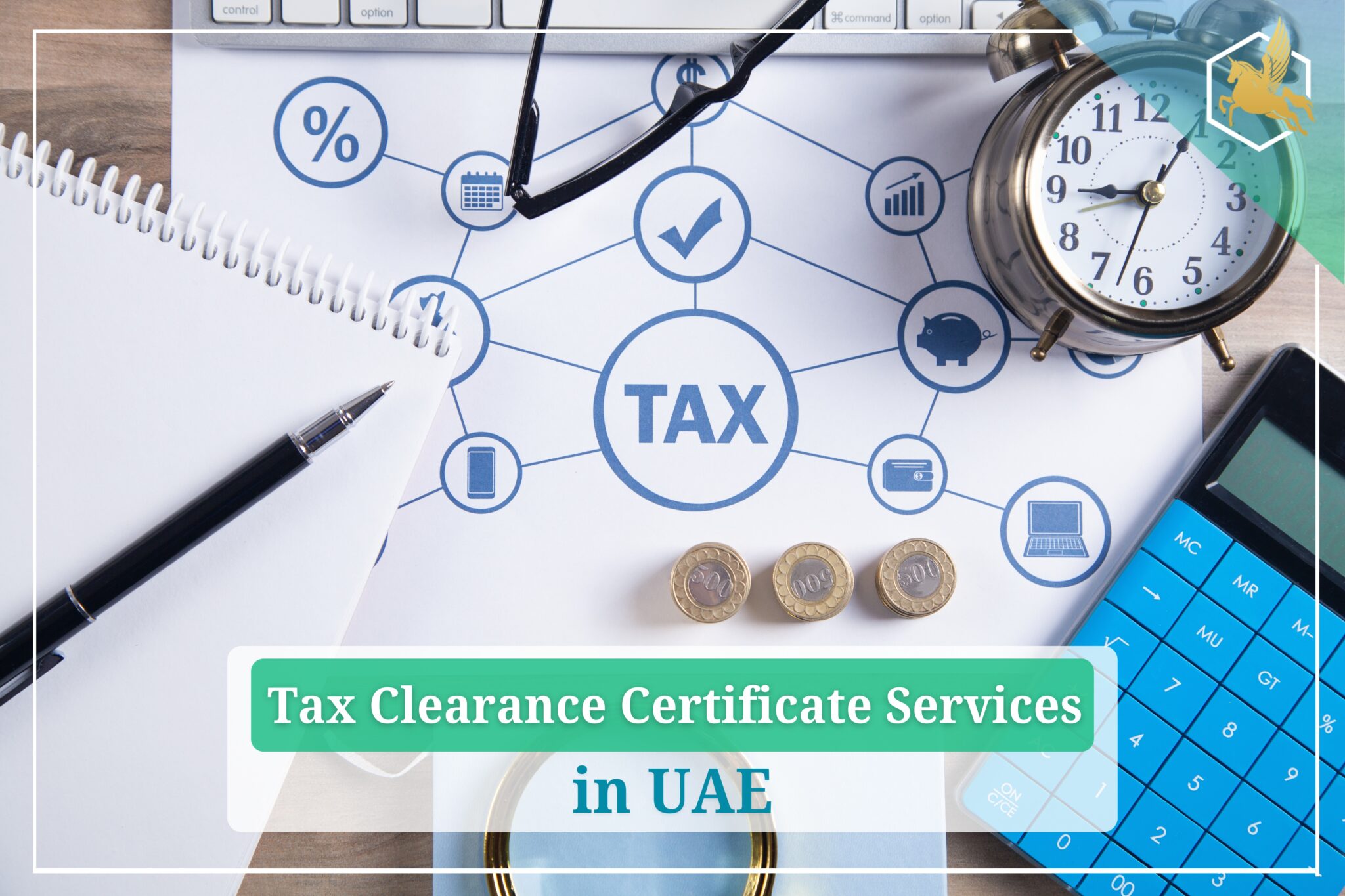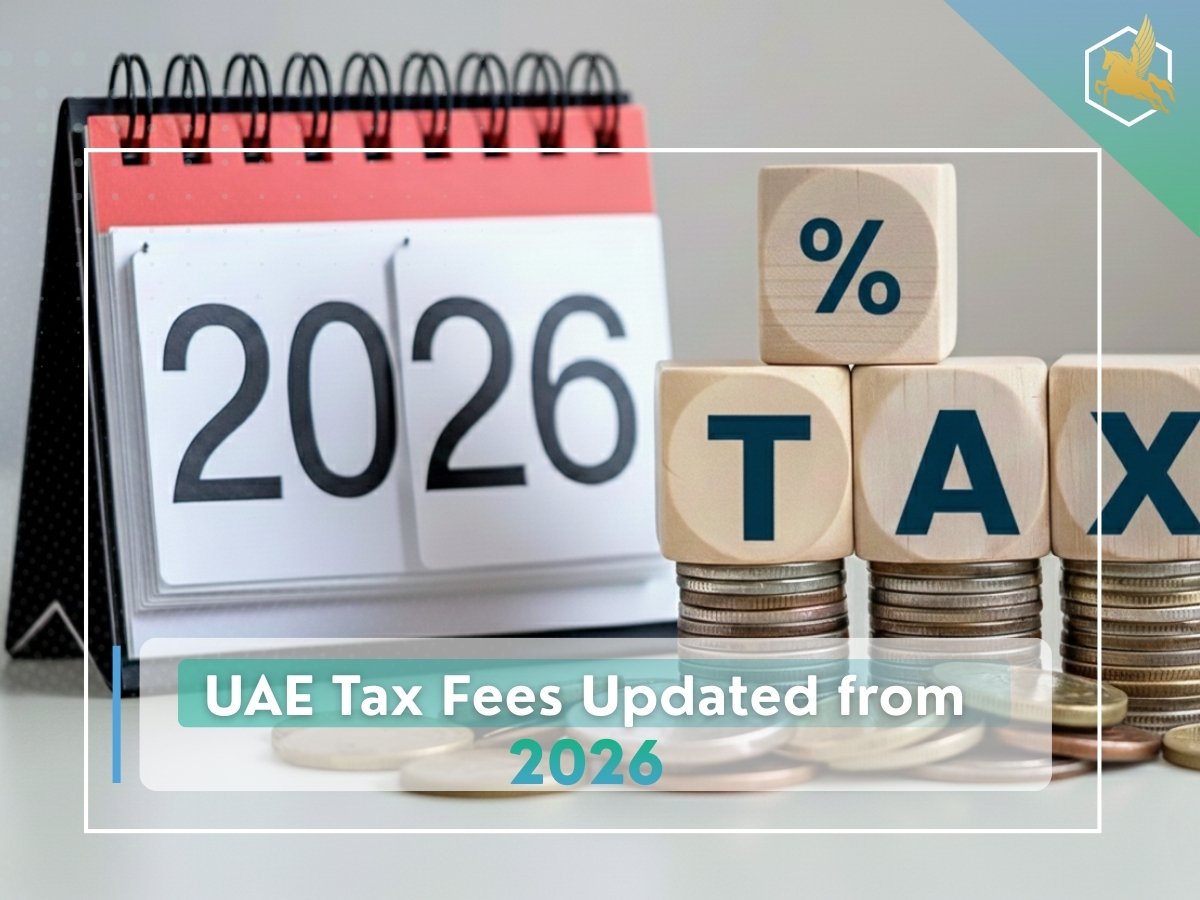Are you running a business in the UAE? Then you must understand the difference between Value Added Tax (VAT) and Corporate Tax. While both taxes play a significant role in the country’s fiscal framework, they serve very different purposes and impact your business in unique ways.
This guide breaks down the key differences between VAT and Corporate Tax in the UAE, helping you stay informed, compliant, and prepared.

Nature of the Tax
VAT is an indirect tax applied to the sale of goods and services. It is collected by businesses but ultimately paid by the consumer.
Corporate Tax is a direct tax charged on the net profit of companies. The business pays it directly to the government.
Who Pays the Tax?
VAT: Collected from consumers by businesses at the point of sale.
Corporate Tax: Paid by the business itself based on its annual profits.
Implementation in the UAE
VAT: Introduced on January 1, 2018, at a standard rate of 5%.
Corporate Tax: Implemented from June 1, 2023, at a 9% rate on taxable income
Tax Rates
VAT: Flat rate of 5% on most goods and services.
Corporate Tax: 9% on profits above AED 375,000; profits below are exempt
Filing Requirements
VAT: Filed monthly or quarterly, depending on turnover.
Corporate Tax: Filed annually after the financial year ends.
Registration Threshold
VAT: Mandatory if taxable turnover exceeds AED 375,000.
Corporate Tax: All taxable businesses must register; tax applies if profits exceed AED 375,000.
Applicability
VAT: Applies to most goods and services, including imports and exports.
Corporate Tax: Applies to all business entities, including Free Zone companies (with exceptions)
Tax Base
VAT: Charged on the gross value of goods and services.
Corporate Tax: Charged on net profit after expenses.
Purpose and Objective
VAT: Designed to generate revenue from consumer spending.
Corporate Tax: Encourages financial transparency and aligns the UAE with international standards.
Comparison Table
| Aspect | VAT | Corporate Tax |
|---|---|---|
| Type of Tax | Indirect tax on consumption | Direct tax on business profit |
| Who Pays | Consumers (collected by businesses) | Businesses |
| UAE Start Date | January 1, 2018 | June 1, 2023 |
| Standard Rate | 5% | 9% (on profits > AED 375,000) |
| Filing Frequency | Monthly or Quarterly | Annually |
| Registration Threshold | AED 375,000 turnover | Mandatory for all taxable persons |
| Scope | Goods and services | All businesses including Free Zones |
| Tax Base | Gross value of sales | Net profit |
| Objective | Raise government revenue from consumption | Promote transparency and align with global tax systems |
Conclusion
Both VAT and Corporate Tax are essential components of the UAE’s evolving taxation system. As a business owner, understanding how these taxes work and how they differ is crucial to remain compliant and avoid penalties.
Whether you’re filing VAT returns or preparing for your first corporate tax filing, having a reliable partner can save you time, money, and stress.
Need Help with Tax Compliance?
Unicorn Global Solutions offers expert support for VAT registration, filing, and corporate tax advisory. We ensure your business stays fully compliant with UAE tax laws. Text us on whatsApp or call us today .
Frequently Asked Questions (FAQs)
VAT is an indirect tax charged on the sale of goods and services and is ultimately paid by consumers. Corporate Tax is a direct tax on the net profits of businesses, paid by the businesses themselves.
VAT registration is mandatory for businesses with a taxable turnover exceeding AED 375,000.
Corporate Tax registration is mandatory for all taxable persons, and the 9% tax applies only if net profits exceed AED 375,000
Yes. Free Zone companies must comply with VAT regulations like any other UAE business. For Corporate Tax, certain Free Zone entities may still benefit from a 0% tax rate, provided they meet qualifying activity criteria and maintain substance requirements.
VAT returns are typically filed monthly or quarterly, depending on the business's turnover.
Corporate Tax returns are filed annually, after the end of the financial year.
Yes.
For VAT, businesses with turnover below AED 187,500 are not required to register.
For Corporate Tax, businesses with net profits below AED 375,000 are exempt from paying the 9% tax but still need to register and file returns.







